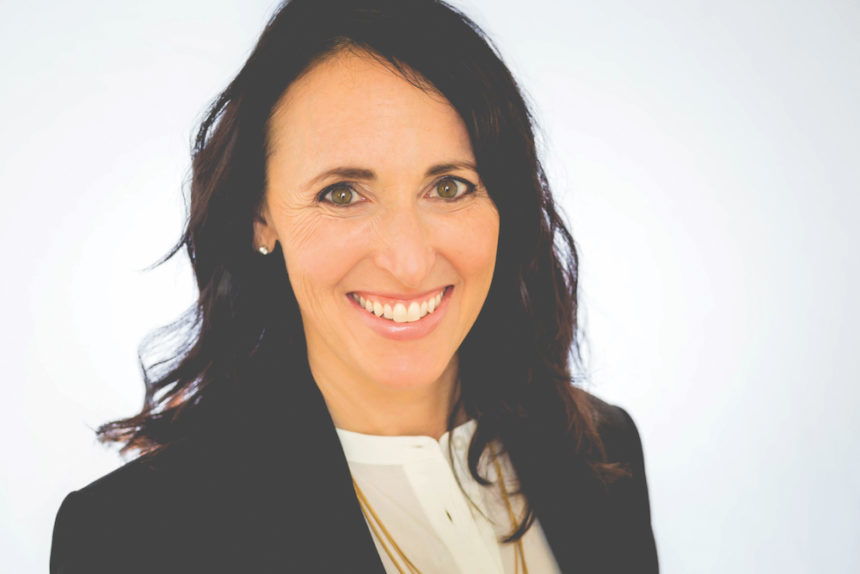Marla Newman, newly promoted to EVP, digital sales at Meredith, has lived one of the widest-ranging professional lives of any A-list media exec. She started selling newspapers during college, calling on pizza places and other local businesses in Eugene, Oregon. She then pivoted to TV at an NBC affiliate, where she plied her craft during the glory era of what the network humbly dubbed Must-See TV. Later, before arriving at Meredith, she logged stints at MTV Networks, Microsoft and Fox Sports.
But it was her single excursion outside the traditional sales realm at a Silicon Alley tech startup that let her know where her strengths, interests and enthusiasms lied. “Every time we put the technology on a client’s server, it blew up,” she recalls with a laugh. “I was in the tech world calling on CTOs, which isn’t me. It was kind of my semester abroad.”
Upon returning to sales at Microsoft — yes, she appreciates the irony of moving from the West Coast to New York and, only then, going to work for Microsoft — Newman reoriented her focus to the burgeoning digital world. She found willing partners in her two clients, Procter & Gamble and Coke. “They wanted experiential. They wanted groundbreaking,” she says.
That, in essence, is the through-line to Newman’s current role at Meredith, in which she heads all aspects of the company’s digital sales. Especially in the pharma, health and wellness spaces, Newman is most keen to work with organizations and brands that aren’t content to present themselves the way they always have.
“Our approach to health is scale plus data plus insight,” she explains. “We try to go deeper and we try to understand contextual relevance.” By way of example, she references lavender: “It can be a color of paint. It can be something you cook with. It can be something in your garden. Those are the dimensions you can work with in health and wellness.”
Clearly it doesn’t hurt to have both size and history on your side in that pursuit. Meredith remains strong in print — the company reports that an issue of People is sold every 1.5 seconds — but the media scrapheap is littered with former print lions that proved digital lambs. That’s probably why Newman stresses the company is “digital first, even though people still do read our magazines.”
Our approach to health is scale plus data plus insight. We try to go deeper and we try to understand contextual relevance.
The numbers are impressive. Overall, Meredith says it reaches 185 million consumers and 90% of all millennial women in the U.S. — more, Newman notes, than either Google or Facebook (“that’s shocking to most people, but we do it by a few thousand”). Given the ever-rising interest in all things health and wellness, the company’s brands have proven a fine match for marketers in the space. In digital, Newman reports the company will conclude 2019 up between 27% and 30% in the pharma category year-over-year.
“What we know from many pharma advertisers is that it’s not just medication alone for many conditions,” she says. “It’s medication and food in some cases. Gardening can help with a sound mind and body. With travel, there are benefits from disconnecting.”
Left unsaid is how neatly Meredith’s brands line up with that thinking. Shape and Health broadly survey healthy living and body positivity. Eating Well, Food & Wine and AllRecipes convey what Newman calls “the stories behind the food.” Better Homes & Gardens and People remain among the most hallowed brands of all time, independent of channel.
Meredith doesn’t take its preeminence among women for granted, though. Recently, the company partnered with The Harris Poll on “Burnout Flashpoint,” a study of what it characterized as “the impending stress epidemic” among American women. Among the findings: 73% are considering a wellness regimen to combat it.
Newman, the rare media exec who can reference Maslow’s hierarchy of needs and the infinitely bingeable TV series Schitt’s Creek in back-to-back sentences, doesn’t need to spell out the opportunity this presents in the months and years ahead. “The goal, especially in pharma and health, is to create, connect, encourage and empower,” she says. “Frankly, I don’t think there’s anyone out there that can do it like we can.”
From the January 01, 2020 Issue of MM+M - Medical Marketing and Media







